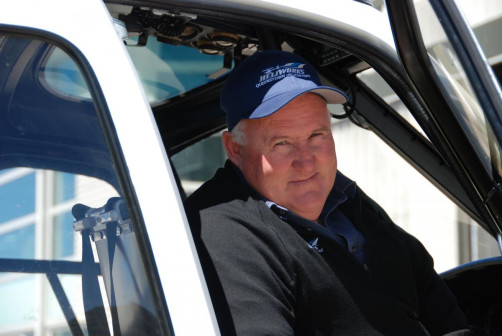Heliworks Queenstown opened its doors in January 2000 and is now one of the most established commercial helicopter companies in the South Island. With some of New Zealand’s greats leading Heliworks, their experience and knowledge of flying is unparalleled.
Heliworks is an extremely diverse company, carrying out a full range of aerial activities including night search and rescue, inter-hospital transfer, medical and accident emergencies, medevac, heli-skiing, firefighting, tourism, aerial photography, surveying and commercial lifting.
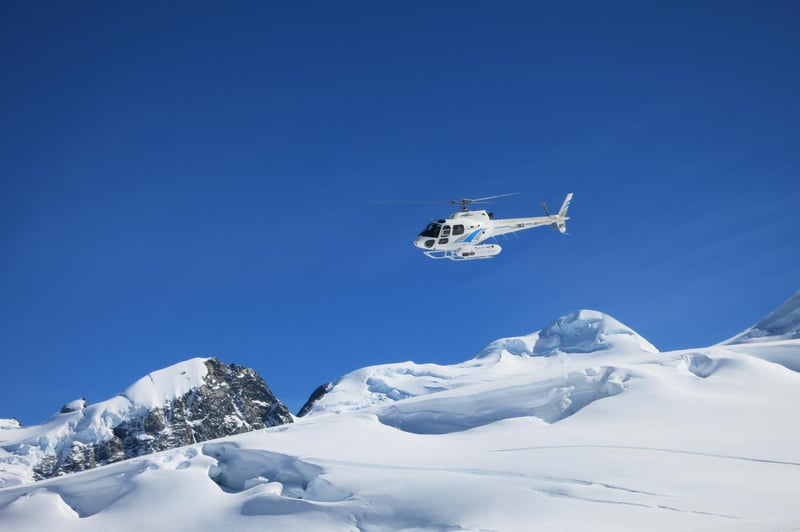
Almost half of their work is tourism-focussed, exploring the ruggedly beautiful South Island — a pilot's dream on a good day. There’s a romantic element to their work too, including heli-weddings and engagements. They really do experience some of life’s highlights.
As a teenager, Richard Mills knew he wanted to fly, and began fixed wing flight training at 15, and by 18 he had a private pilot's licence. His first Helicopter trial flight took place in Makarora, situated at the northern end of Lake Wanaka. Finding fixed wing a little… fixed… Millsy believed his personality and temperament was better suited to helicopter piloting.
“I was a little more free-spirited and enjoyed the thrill of helicopter flying.”
At 20, he began working commercially as a helicopter pilot.
From Invercargill to International, Millsy's role has seen him working in African game parks, to conducting seismic surveys in oil fields throughout Papua New Guinea. He’s been in the logging industry in Malaysia and worked throughout Mexico and Britain. A little closer to home, he also had the occasional stint in Southland New Zealand, working in tourism and agriculture.
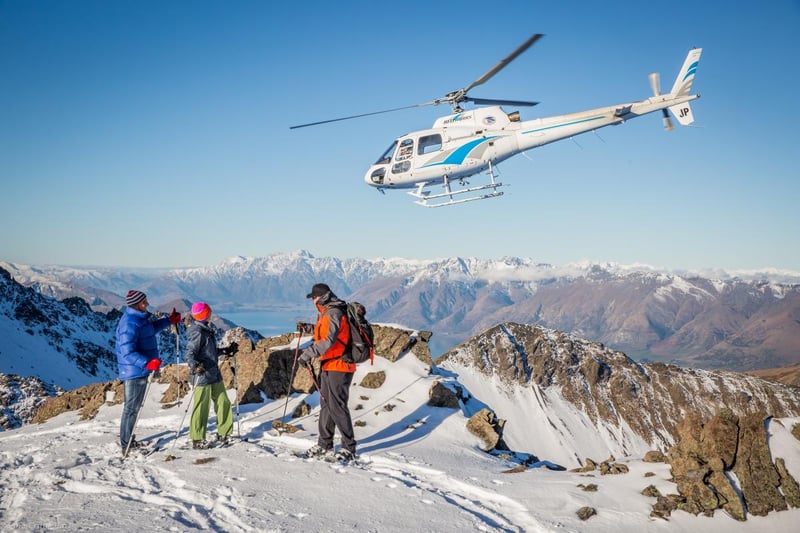
Millsy’s career opened his eyes to the diversity of human nature and introduced him to some fantastic people, many of whom he’s still in contact with today. “My career has broadened my networks immensely. There is always someone to visit when you go on holiday.”
Helicopter piloting knows no bounds, and their work extends across multiple disciplines — sometimes in one day! For Millsy, Search and Rescue and Medical Emergency work are some of the more satisfying elements of his job.
“There is no better feeling than saving a life, and knowing that without accessing them via helicopter, they would be much worse off.”
Even for the most experienced pilots, there are still bad days and challenges. In 2000, while logging in Malaysia, Millsy crashed through the trees and was left severely injured. While he contemplated a career change, after 4.5 years, he was back in the seat.
“It beats working for a living.”
For a pilot, some of the worst days are carrying people home who’ve passed away — especially when it is one of your own. But like any industry, it’s about focussing on the good you can do.
After 25 years working abroad, Millsy was ready to settle down and work from his home base in New Zealand. He took up the General Manager position with Heliworks and has been leading their 20-strong team for over 6 years.
Although the travel has been extraordinary, Richard always had that itch to return back to New Zealand.
“Central Otago is a joy to fly in, but make no mistake, it can be a challenging environment."
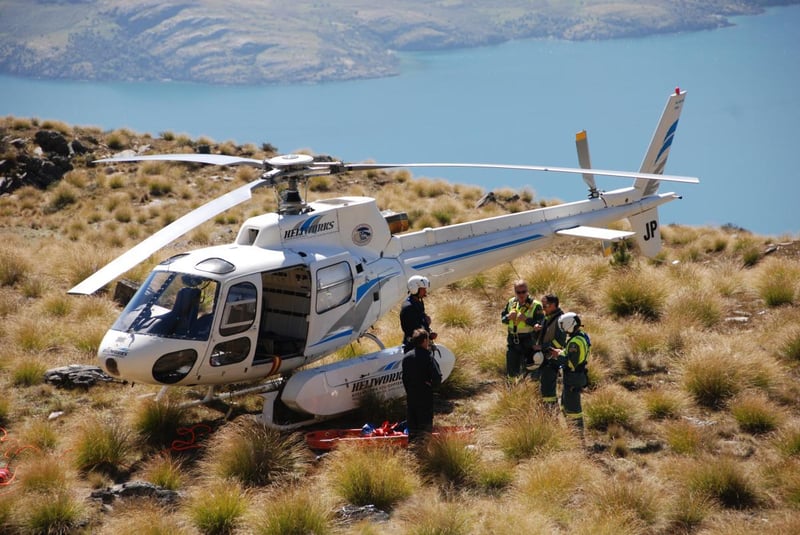
Millsy knows New Zealand pilots to be hardworking and accustomed to challenging environments, which is why he believes Kiwi pilots get picked up by International companies. However, he stresses that a professional attitude comes first equal with skill.
An extremely selfless and genuine person, Millsy enjoys being a role model and mentor for up and coming pilots and knows the huge benefits of learning from a well-respected mentor that you can trust. Richard believes that training with a reputable organization which also operates commercially is the key to kicking off a career in aviation.
“It’s the commercial experience that makes you more hirable.”
Being a helicopter pilot requires you to be flexible, “if you’re not willing to travel, then this is not the industry for you.”
Most importantly, however, it’s about having integrity and sensibility in and out of the aircraft. “Professionalism is just as important as your flying skill.”
After 40+ years of flying, Millsy can certainly attest to the industry’s developments — and he notes one of the biggest developments to be GPS, which he first used in 1992.
“When you’re in the middle of nowhere, in deserts with few mountains or distinguishable features to help guide you, GPS is the most helpful tool.”
Although now he would not be without it, Millsy is pleased he’s known life as a pilot before GPS. Before the technology existed, pilots had to be able to navigate the old-fashioned way. It was physics, speed, distance, time and direction. Navigation and map reading were vital skills in flying.
“These days when you ask pilots who’ve never been without GPS about compass variation and deviation and the wind drift, they just say ‘I just need to keep the dotted line in the middle on the gps.’”
Before GPS, pilots navigated with a compass and a watch, but these days Millsy would not want to do without it, especially over the featureless country, offshore or in inclement weather.
“Tracking has made our lives easier, and our jobs safer. We cannot and would not be without it. It’s the best thing since sliced bread.”
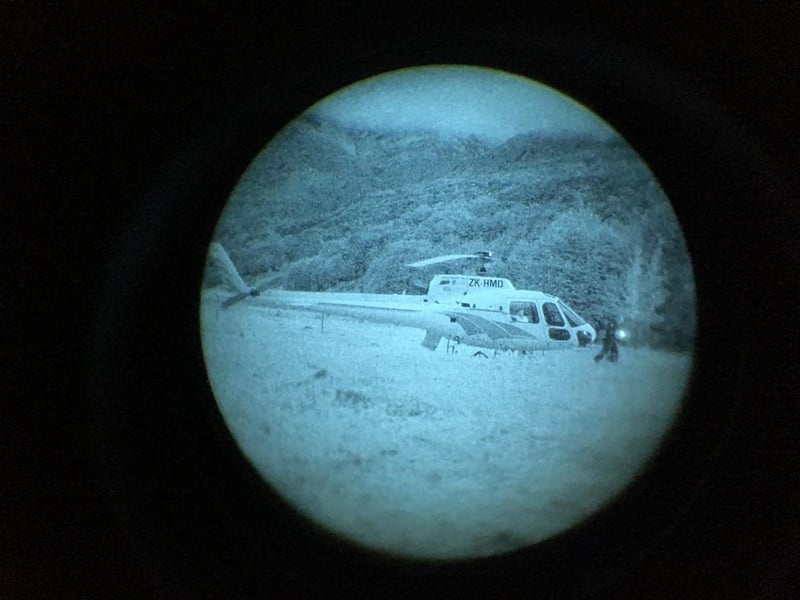
Night vision goggles are also a tool that Millsy believes has transformed the industry. In the past, all night searches were done with the naked eye — which he says now seems a distant memory! "You had to rely on other senses, using lights and most of all, local knowledge to navigate.”
The aircrafts themselves haven’t changed hugely in Millsy's time, but improved technology and tracking systems have advanced the industry.
“We’re able to communicate with our team and with external parties. This gives us peace of mind, and ensures our staff feel like they’re in safe hands.”
In the skies as a commercial pilot since 1979, Richard Mills is one of New Zealand’s most experienced Helicopter pilots. Despite its challenges, Millsy absolutely adores his office — he's one of the lucky ones who can experience a birds-eye-view of unique landscapes and sites.
“When I retire I will miss many things, not least of all watching the sun going down over Fiordland.”
